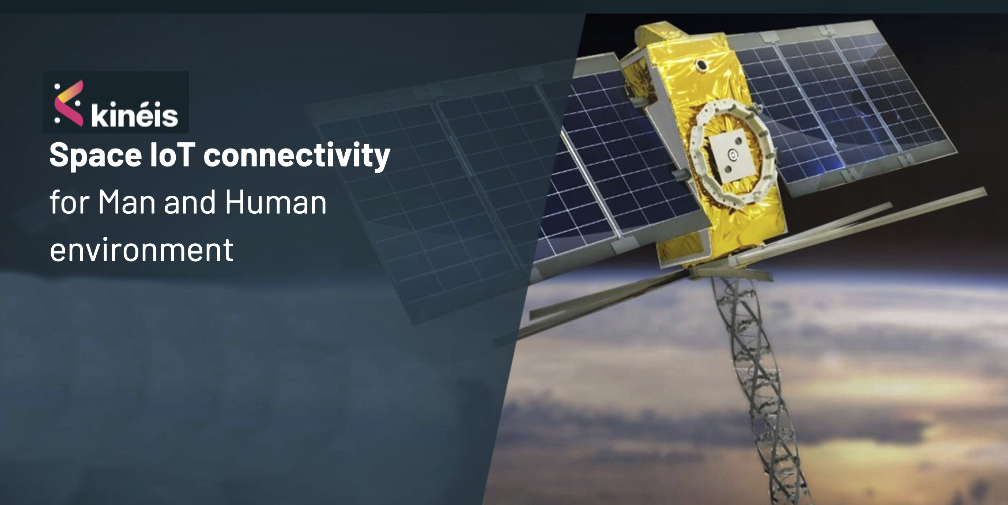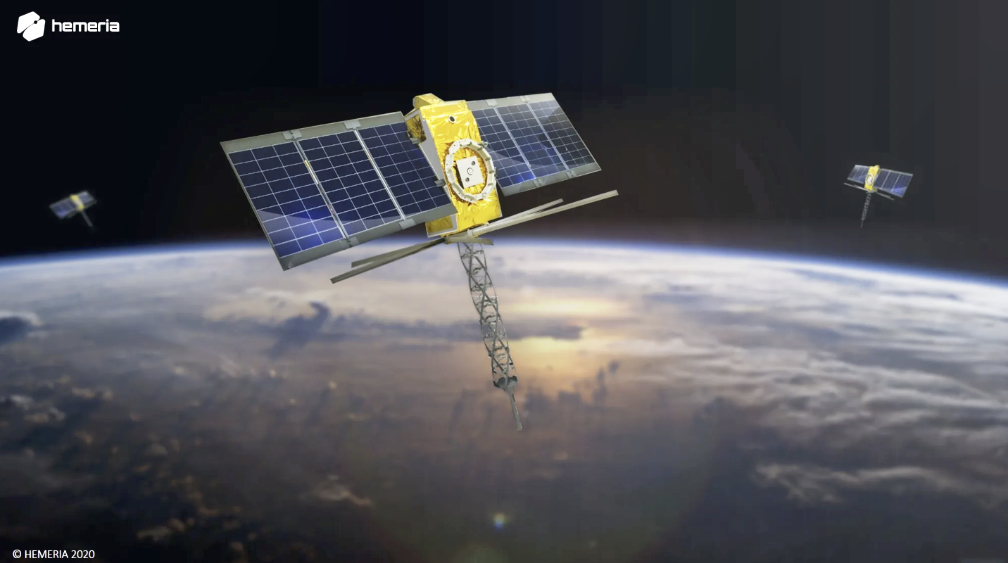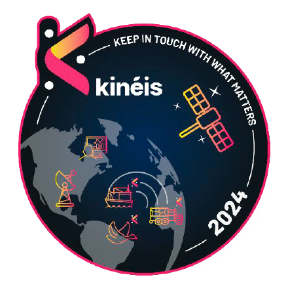
French satellite operator Kinéis, a global connectivity provider and pioneer of the new French space sector, raised a historic €100 million in 2020. Since then, its teams have been working on the design of the Kinéis system, a revolution in satellite-based Internet of Things (IoT). In 2024, Kinéis is preparing for a decisive stage in the roll-out of its system.

Between June 10th and July 9th, 2024, the Toulouse-based company will carry out the first of five launches to put into orbit its constellation of 25 nanosatellites, the first European constellation dedicated to IoT. This first launch will take place with Rocket Lab’s Electron launcher from the Pacific coast of New Zealand’s North Island.

Almost 90% of the Earth’s surface is not covered by terrestrial networks (black spots). Kinéis’ spatial IoT provides a direct and unique response to complement these networks. Kinéis’ mission
is to connect and locate any object, anywhere on the Earth’s surface (including black spots), and
to guarantee the transmission of data from the connected object to users anywhere in the world
in near-real time, at low bit rates (small messages), with very low energy consumption. To
accomplish this mission, Kinéis has inherited more than 40 years’ expertise in data collection from
space, thanks to CNES (French space agency) and CLS, the project’s founders.
Kinéis operates for a global market in areas that represent major challenges for human life and
the environment: agriculture, early detection of forest fires, water resource management
(flooding, drought, pollution, distribution), traceability of wild and farmed animals, monitoring of
energy infrastructures and networks (leak detection and monitoring), transport and logistics
monitoring, monitoring of commercial and scientific maritime activities, security (search and
rescue) and defence.

A top-class cast from the Toulouse space ecosystem is supporting Kinéis in this satellite IoT
revolution, including Hemeria (development of the platform and industrialization of the
satellites), Thales Alenia Space, Syrlinks from the Safran group (payload and mission center)
and Comat (antennas). CNES) has also provided unfailing support and expertise to Kinéis from the start of the project. The project is also financially backed by Bpifrance, CLS and other major
players, such as BNP Paribas Développement, CELAD, Maison Julien and Kelly Dassault, and
Ethics Group.
As is the case with most space missions, Kinéis has also created its patch, a woven patch that represents the most important aspects of its project: global connectivity, a network of ground stations, varied applications and the end user.
Commenting on the announcement of the first launch, Alexandre Tisserant, Kinéis CEO, said: “I’m very pleased to announce the launch window for this launch, which initiates the placing in orbit of the Kinéis constellation, the first European constellation dedicated to the Internet of Things. With 5 launches planned in the coming months, Kinéis is in the final stage of bringing this unique project to fruition, four years after raising its historic funds. All our teams are mobilized to make this event a technical, operational and commercial success.“
2024: the Kinéis Space Olympiad — the first half-year:
- January: announcement of the launch window for the 1st launch
- February: nanosatellites industrialized
- March: press visit to the manufacturer in Toulouse
- April: announcement of the final launch date / departure of the 1st satellites for New
Zealand - May: campaign to prepare the 5 satellites in New Zealand for the 1st launch. The 5 launches needed to deploy the Kinéis constellation are then scheduled over several months, starting in late spring 2024.
